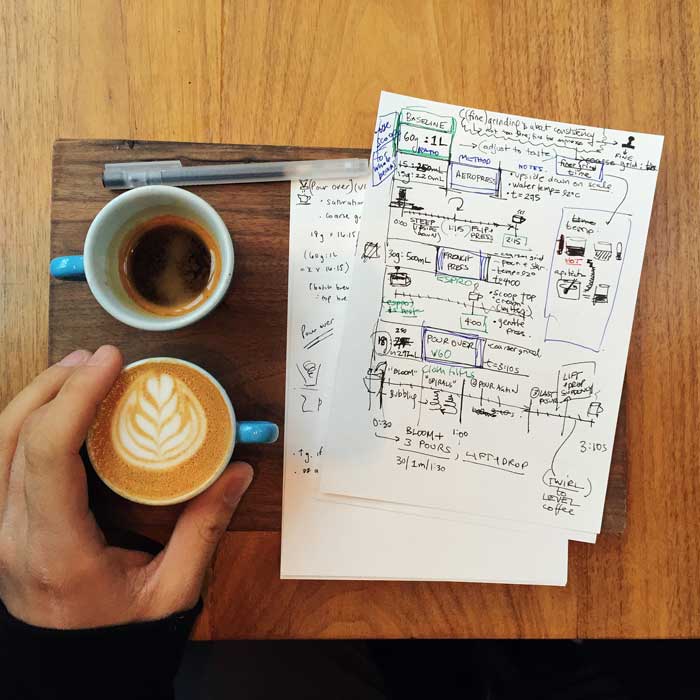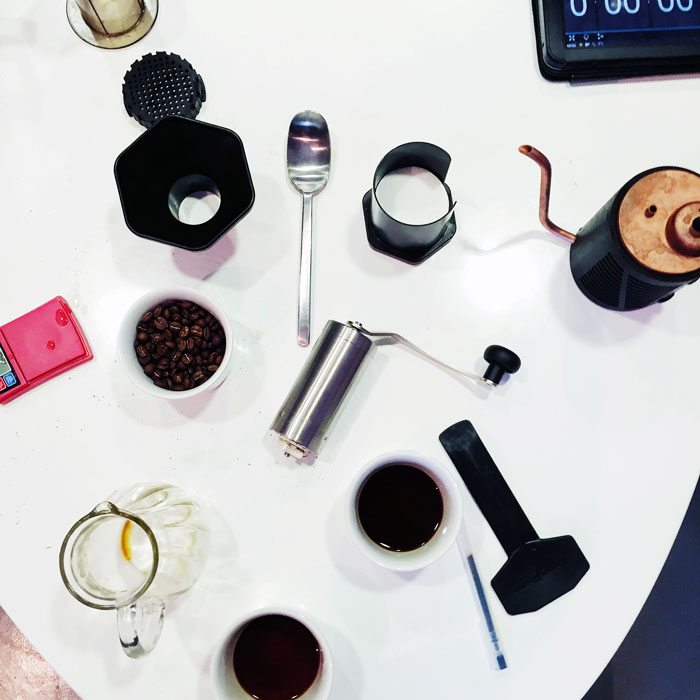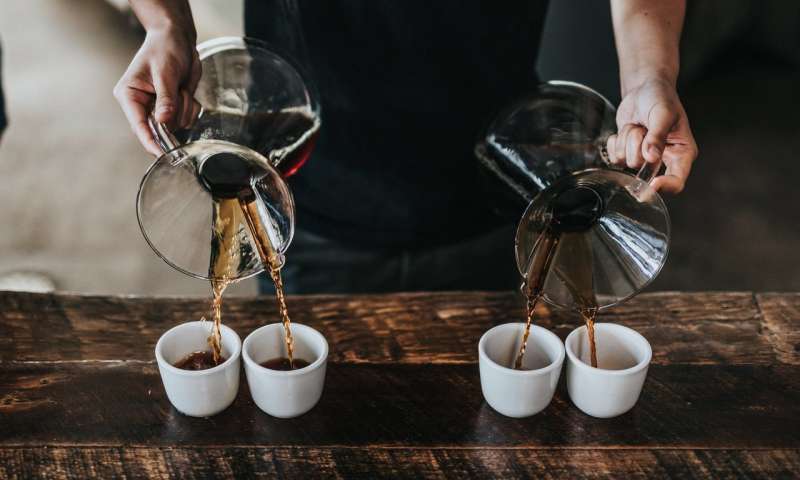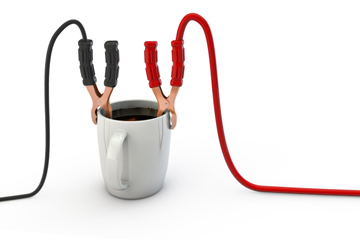[cold knowledge] is there a direct relationship between caffeine and baking?

Professional coffee knowledge exchange More coffee bean information Please pay attention to coffee workshop (Weixin Official Accounts cafe_style)
Is there a direct relationship between caffeine and roasting?
Some people say that coffee flavor will also change with the degree of roasting, generally sour and roasting degree is inversely proportional, if you prefer fruit acid flavor friends, may wish to buy a lighter roasting degree of coffee, if you like a strong taste with a little sweet, you can choose heavy roast beans, in addition, caffeine content and roasting degree is inversely proportional, that is, light roast coffee contains caffeine content will be higher, because caffeine will be destroyed during roasting.
However, some people say that the substance "caffeine" will change due to the difference in the brewing process, caffeine is "slightly soluble" in water, and the solubility will also be affected by temperature and time.
So let's go back to the source and think, when we talk about "more or less caffeine," are we talking about "caffeine percentage" or "total caffeine"?
Usually canned coffee and instant coffee sold on the market are written in terms of "ppm" or "mg/ml" of caffeine content, and if there is no accident, the caffeine label of chain coffee shops should also be based on the proportion of content to distinguish which is higher and which is lower.
If coffee a has half as much caffeine as coffee b, but coffee a has three times as much caffeine in a cup as coffee b, and both are drinks, people who drink coffee a with a low caffeine ratio will naturally consume more caffeine than people who drink coffee b.

Regarding the influencing factors of caffeine, take a look at what is in the major works:
01
Advocates that deep roasting reduces caffeine
Caffeine levels vary with the degree of roasting. Some people may be surprised that the darker the roast, the darker the coffee, the less caffeine it contains. Espresso brewed from Italian roasts has three times as much caffeine as coffee brewed from city roasts. In other words, the lighter the roast, the more caffeine the American coffee has. It is recommended to choose coffee according to the situation, drink American coffee in the morning to drive away drowsiness, and try to choose espresso with less caffeine before going to bed. (My First Coffee Book, 2009, Sanae Tomita, p. 173)

02
Claiming that roasting hardly affects caffeine content
Altering organization and structure: According to scientists (Illy,"Espresso Coffee"), roasting changes the organization of coffee's interior. Among them, carbohydrates dropped sharply from 58.9% to 38.3%, and acidic substances (fatty acids, quinic acid and chloric acid, etc.) dropped from 8.0% to 4.9%. Under pyrolysis, these substances recombine and transform into caramel, carbon dioxide and some volatile substances. Caramel accounts for 25% of the quality of roasted beans, forming the sweet taste of coffee, while lipids, which originally accounted for 16.2% of raw beans, increased to 17% after roasting, are the source of alcohol and consistency. Caffeine levels barely change before and after roasting, and some people mistakenly think that heavy roasted coffee is bitter and caffeine-rich, which is not true. (Selected Good Coffee, 2012, Ke Mingchuan, P.76)
03
It is argued that raw beans have higher caffeine than cooked beans
Raw beans have higher caffeine, but they are basically not far away. It should be noted that coffee beans that have been roasted will be more irritating than boiled coffee, so people who don't usually drink coffee and children should not try it casually. (Coffee Knowledge, 2010, LOHO Editorial Department, p. 179)

04
Claims that dark roast coffee beans have more caffeine than light roast coffee beans
(4-1)How much caffeine is in a cup of coffee? 100ml of coffee contains approximately 40 to 70mg of caffeine. Cold brew coffee is lower in caffeine, dark roast coffee has more caffeine than light roast coffee, and espresso coffee has more caffeine. (Coffee Knowledge, 2010, LOHO Editorial Department, p. 182)
(4-2)Caffeine has a melting point of 237 ° C, so the roasted caffeine remains almost intact and dissolves in the cup. It is important to realize that dark roast beans tend to have less caffeine than light roast beans, because dark roast beans lose 20% of their weight and must be brewed with more beans, resulting in more caffeine. You might as well calculate for yourself, how many deep-baked beans are there in 10 grams? Definitely more than light baked beans. (Coffee Science: Secret History, Fine Beans and Roasting, 2008, Han Huaizong, p. 216)

Everyone seems to be very reasonable, it seems that caffeine is not so simple!!!
So let's get to know caffeine while we feel it with our bodies ~
Important Notice :
前街咖啡 FrontStreet Coffee has moved to new addredd:
FrontStreet Coffee Address: 315,Donghua East Road,GuangZhou
Tel:020 38364473
- Prev

Honey hometown-- Central American Coffee beans Latin American Coffee beans Story American Coffee Flavor
Professional coffee knowledge exchange more coffee bean information please follow Coffee Workshop (Wechat official account cafe_style) Central America, connecting South and North America two major landmasses, east by the Caribbean Sea, west by the Pacific Ocean, and the terrain is narrow, greatly affected by the marine climate. Central America is a mountainous terrain, volcanic activity is active, natural volcanic ash also makes the soil particularly fertile, a variety of environment
- Next

UTZ Certification-better planting Environment, better Planet Future what is UTZ Certification
Professional coffee knowledge exchange more coffee bean information please follow the coffee workshop (Wechat official account cafe_style) to improve the knock-on effects and impact of climate change, many international non-governmental organizations have taken action to promote the concept of sustainable management. Among them, the scale, touch the country and cover the scope of the "UTZ certification organization" is the most extensive. UTZ Holland headquarters
Related
- Beginners will see the "Coffee pull flower" guide!
- What is the difference between ice blog purified milk and ordinary milk coffee?
- Why is the Philippines the largest producer of crops in Liberia?
- For coffee extraction, should the fine powder be retained?
- How does extracted espresso fill pressed powder? How much strength does it take to press the powder?
- How to make jasmine cold extract coffee? Is the jasmine + latte good?
- Will this little toy really make the coffee taste better? How does Lily Drip affect coffee extraction?
- Will the action of slapping the filter cup also affect coffee extraction?
- What's the difference between powder-to-water ratio and powder-to-liquid ratio?
- What is the Ethiopian local species? What does it have to do with Heirloom native species?

